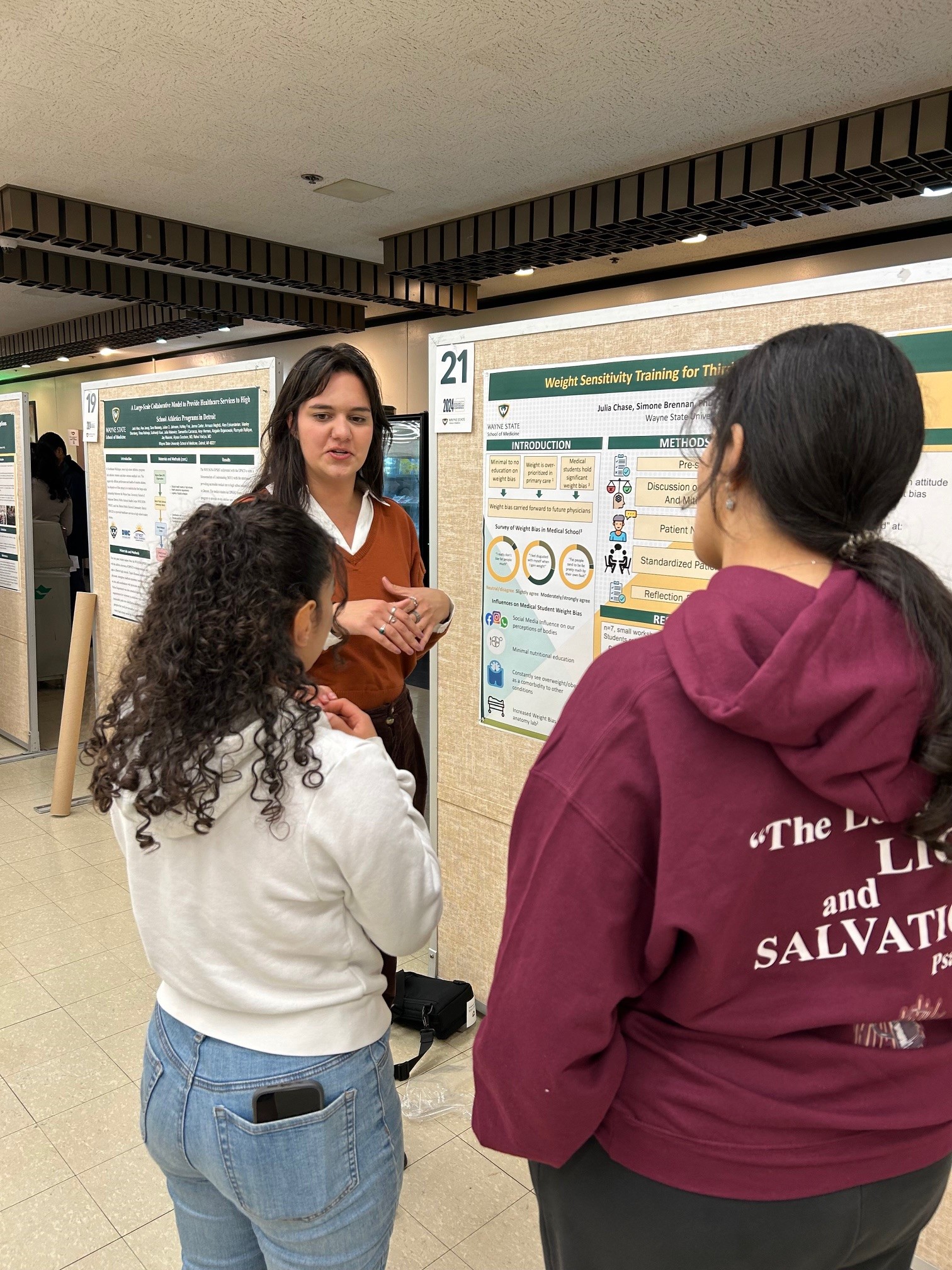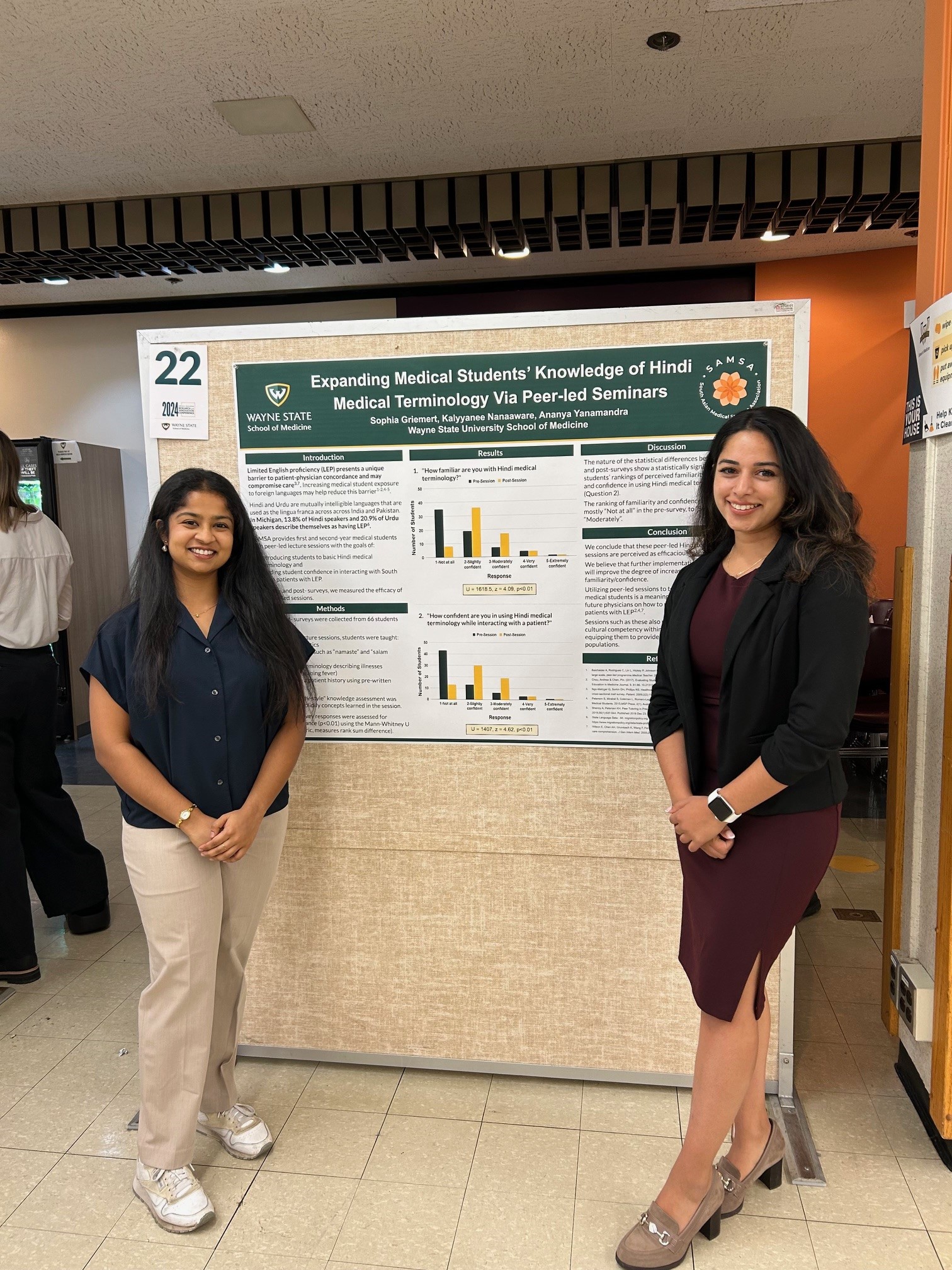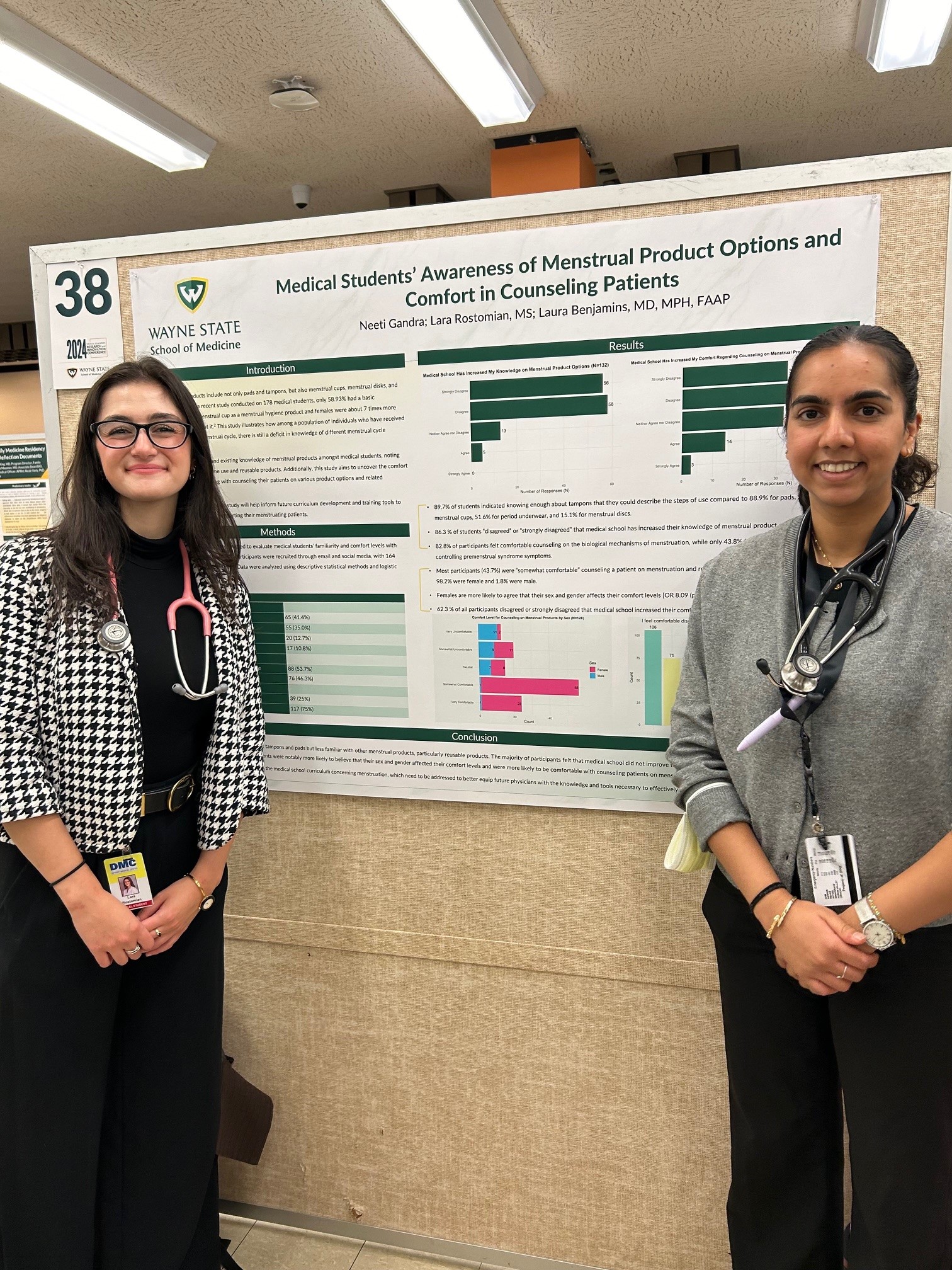The Wayne State University School of Medicine held its sixth annual Medical Education Research and Innovation Conference on Oct. 10, showcasing medical education research and innovation projects conducted by students, residents, staff and faculty.
The conference took place in the Scott Hall Cafeteria, Mazurek Medical Education Commons and the Margherio Family Conference Center.

In addition to judging of entries, the conference featured keynote speaker Marc Triola, M.D., the associate dean for Educational Informatics and director of the Institute for Innovations in Medical Education at the New York University School of Medicine, who spoke on the role of artificial intelligence in medical education.
Entries were judged in three categories:

Medical Education Research: Research related to the learning process that occurs within a medical education setting. Topics included, but were not limited to, learner characteristics, optimizing the learning process, assessment and evaluation, professional development, instruction design, technology in the learning environment and wellbeing.
Medical Education Innovation: Innovative curricula that addressed a current issue within medical education based on learning principles and designed to meet a specific need.
Works in Progress: Research and innovation projects under development.
Winning entries included:
Innovation Posters (Completed Work)
First place: Kit Tran, “Cultivating Confidence: Improving LGBTQ+-focused Sexual History Training for Medical Students”
Second place: Julia Chase, “Weight Sensitivity Training for Third-Year Medical Students”
Third place: Simone Brennan, “Innovating SP Training Curricula: Empowering Standardized Patients as Professional Lay Educators to Enhance Clinical Training”
Innovation Posters (Work in Progress)
First place: Shivani Bongu, “Disability training for medical students through the ARIE program”
Second place: Tonya Thomas, “Course Design Quality Assurance—NEW! The Course QuAD Program @ WSUSOM”
Third place: Samaah Saifullah, “Bridging the Divide: Using AI to Align Faculty Resources with Step 1 Content for Improved Student Engagement”

Research Posters (Completed Work)
First place: Richard Tuttle, “Implementation of Generative AI in Medical Education: A Scoping Review”
Second place: Neeti Gandra, “Medical Students’ Awareness of Menstrual Product Options and Confidence in Counseling Patients”
Third place: Samantha Katz, “Top Wellness and Stress Contributors during Step 1 Studying that Can Inform Institutional Student Support”
Research Posters (Work in Progress)
First place: Henry Li, “Building Strong Connections From Day 1: Roundtable Sessions at Medical School Orientation”
Second place: Elizabeth Bolton, “Exploring the Risks Associated with the Rise of AI in Medical Education: A Scoping Review”
Third place: Kalyyanee Nanaaware, “Expanding Medical Students’ Knowledge of Hindi Medical Terminology Via Peer-led Seminars”
Research Oral
First place: Tabitha Moses, “Identifying the Best Time to Incorporate Harm Reduction Into Medical Education: Are the Gains of Early Trainings Maintained?”
Second place: Kinan Sawar, “Undergraduate Medical Education Curriculum Gap Analysis Using a Large Language Model”
Third place: Priya Sharma, “How Do Students Prepare for Step 1 Success? Exploration of Medical Student Resource Utilization”
Innovation Oral
First place: Tanha Shah, “Do Graduating Medical Students Feel Prepared to Assess Patient Safety?”
Second place: Dhwani Krishnan, “Integrating SBAR Communication Training into Pre-Clinical Education”
Third place: Lea Monday, “HIV Bootcamp: Equipping New Fellows with Essential Knowledge and Skills for HIV Care Excellence”